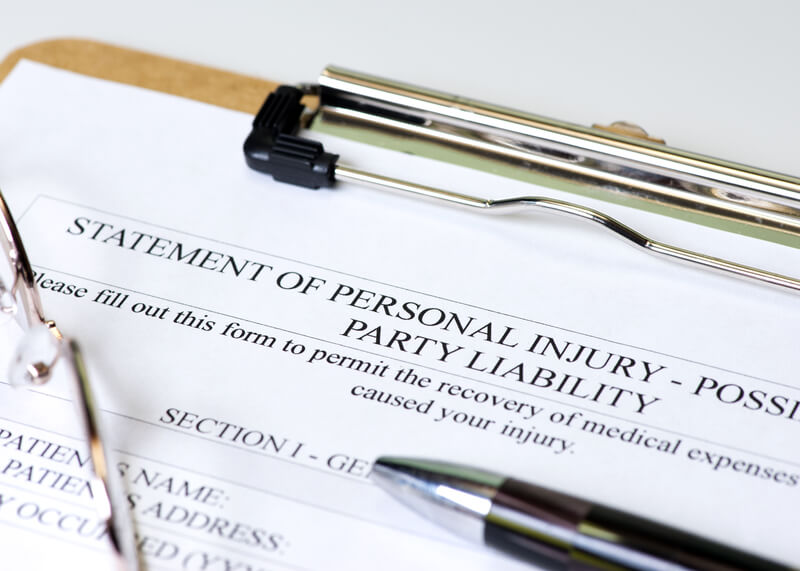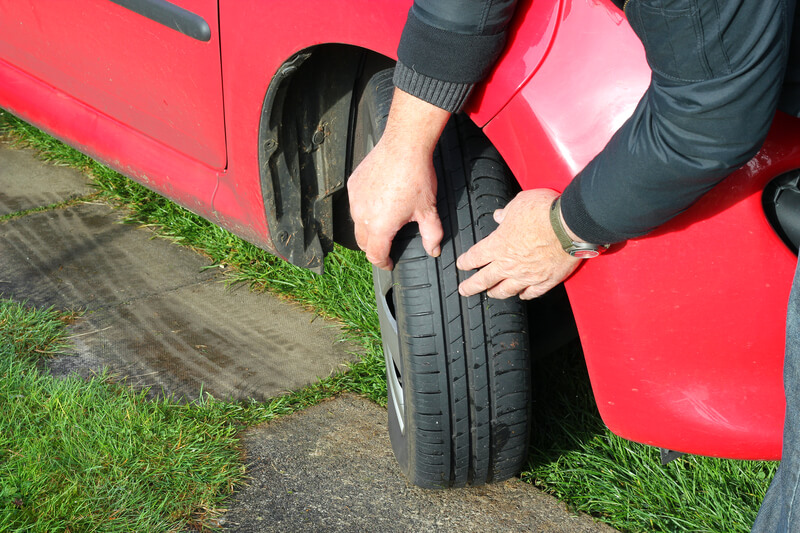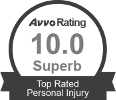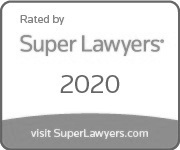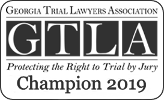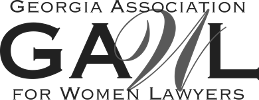After the chaos and stress of a car crash, many drivers are surprised to get a call, often soon after the wreck, from an insurance company representative. The call might seem routine—like a quick clerical task, just to verify the official statement. It might even feel like a goodwill gesture, one thing checked off from a suddenly daunting post-crash to-do list, or a pathway to a faster settlement.
But while some folks might assume the call is just another necessary part of the process, much like speaking to the police at the scene, an at-fault driver’s insurance company isn’t interested in clarifying the record when they call. Instead, the adjuster is hoping to chip away at the facts supporting their customer’s fault. It’s their job to limit what they pay out on the insured driver’s insurance policy, whether that means securing a low settlement, blaming pre-existing conditions for injuries or shifting fault entirely.
Unsurprisingly, it’s risky to speak to the other driver’s auto insurance company after a crash. Adding more words, suppositions and unrelated details to the existing record helps cloud up the picture of what happened, giving the insurer room to limit their liability. Knowing this, some adjusters will imply the call is required. So, is it? And if not, what should an injured driver say when the other driver’s insurance company calls?
Do I have to speak to the at-fault driver’s insurance company?
If you get a call from the at-fault driver’s insurer after a crash, you don’t have to speak to them. It’s perfectly acceptable, and, in fact, it’s in your best interests to politely decline to discuss the crash with the adjuster.
While an insurance company shouldn’t lie to you, the adjuster may find a way to suggest that:
- You have to speak to them.
- It will be easier for you if you speak to them.
- It will jeopardize your claim or settlement if you don’t speak to them.
No matter what the adjuster says, however, you have no obligation to speak to the at-fault driver’s insurer after a crash. Your obligations after a crash are simply:
- To stay on the accident scene, unless serious bodily injury occurs, and speak to the responding officer
- To answer the responding officer’s questions about what happened in the crash
- To share your license, registration and insurance coverage with that officer
- To share your name, contact number, license and insurance information with the other drivers involved
- To notify your own insurer of the crash
Even in these interactions, you should be careful to be honest, calm and not overshare or theorize. It’s easy to feel overwhelmed in a crash and rush to apologize or make some excuse for what happened. Simple statements, like “I’m so sorry,” can be used to question fault down the road. When interacting with the responding officer, answer questions directly, stick to the facts and don’t cast blame.
Why would the at-fault driver’s insurer want to talk?
If you’re fielding a call from the at-fault driver’s insurance agent, or repeated calls, it’s sometimes helpful to remember why they’re calling you.
- They’re hoping you’ll make a misstep. Most commonly, the insurance adjuster asks questions and requests statements regarding the auto accident, assuming that you’ll make a comment or share some doubt that they can then use to limit their own liability. This might happen if you say something that contradicts what you shared on the scene, even if you simply misspeak. Small inconsistencies in your story can be the groundwork for the insurer denying fault.
- They want to question your injuries. Even if who’s at fault is not in question, the adjuster may look to save money by questioning the extent of your injury claims or attributing them to preexisting conditions. They might ask questions about old injuries or wait for an aside about a previous injury or condition. They’ll also potentially ask about any treatment delays, opening up the possibility that you were hurt in the interim between the crash and when you received care.
- They plan to make a low settlement. In cases where it’s clear what happened and who was at fault, the insurer might try to limit liability not by denying fault, but by paying out quickly and ending the claim. This quick payout may not even cover the initial car repair cost to fix the vehicle damage. If an insurer offers you a settlement before you even understand the extent of your injuries, that’s a red flag. When injured in an accident, always consult a doctor, as medical bills and medical expenses may be ongoing. By agreeing to a settlement, you cut off any future compensation for your treatment costs. You want to have a strong understanding of your likely care needs before even considering a settlement.
- They’re looking for anything that shifts blame. Among a mix of straightforward questions about the crash, adjusters often include deeply personal ones, hoping to get information about your medication use, alcohol consumption, mental state or distractibility. Obviously, answering such questions is likely to harm your case.
What should I say if the at-fault driver’s insurance company calls?
If you’re contacted by the driver’s insurance company of the at-fault accident, respond in a polite, calm manner. Remember, you are not obligated to speak to them and you’re in control of the situation—no matter what they might imply.
While every situation will be different—adjusters will try different techniques to encourage you to talk—you can consider saying:
- That you won’t discuss accident specifics with them
- That they should get in touch with your own insurance company for accident details
- That you’re working with an car accident lawyer who should be able to handle communications for you. Feel free to share the phone number and contact information of the law firm handling your case
You should absolutely refuse any requests for a written statement or a recorded statement. Be cautious about even simple conversational asides, like saying “I’m fine” after a seemingly caring inquiry regarding your health. Instead, try to end the conversation as politely and with as few words as possible.
What to do if you’ve already spoken to the at-fault driver’s insurer
While it’s always advisable to avoid conversations with the at-fault driver’s car insurance, it’s understandable that sometimes people accept the call and answer questions before realizing they should not have done so. After all, car insurance companies often reach out soon after the crash, catching people at their most overwhelmed. Some drivers are still receiving medical care, fielding calls from concerned employers, or making last-minute arrangements for childcare or transportation.
If, later, you realize that speaking to the insurer was not advisable and you’d like to work with a personal injury law firm, be sure to share with your attorney the extent of your conversation. It’s important to know where you stand. Specifically, you’ll want to tell your lawyer if:
- You shared that some aspect of the crash was possibly your fault
- You discussed your injuries and your medical care
- You discussed your medical conditions or past injuries
- You discussed your treatment plan or future care needs
- You discussed a possible settlement
- You realize you made a comment that contradicted your previous statement to the police or what is written in the police report
- You answered questions related to medication use, alcohol use, your mood or mental state, or distracted driving
You’ll also want to tell your attorney if you agreed to make a written statement or be recorded.
How an attorney can help
One of the most helpful aspects of working with an attorney after a crash is passing off tricky communications to a professional who’s representing your interests. An insurance company will engage in a different type of conversation with an attorney than they will with an injured driver. Often, involving an attorney is enough to signal to the insurance company that they’ll have a harder time attempting to shift blame, offer a low settlement or otherwise complicate the settlement process. Simply referring an insurer to your attorney is usually enough to end the calls.
When choosing a personal injury attorney, you’ll want to:
- Choose an attorney who specializes in car accident claims. While many attorneys will claim to represent clients in personal injury cases, some spend the bulk of their time focusing on other legal areas. It’s important to select an attorney who understands the ins and outs of insurance laws and insurance claims. (At Litner + Deganian, several of our attorneys have even worked on the other side, at one point representing the insurance companies and gaining an inside perspective on their tactics.)
- Ask the prospective attorney about past work. An attorney should be able to help you understand why they’re an expert in personal injury protection cases and share the types of cases they’ve handled in the past, whether that’s representing victims in DUI crashes, tractor-trailer accidents or multi-vehicle crashes. It’s good to know that whatever you’re facing, your attorney has experience.
- Do your own research. Look at the attorney’s public presence and former client reviews. Do you feel like they will be able to communicate clearly and respectfully in your relationship? While you want an attorney who will be tenacious in insurance company interactions, the dynamic with you should be open, forthright and cordial.
- Watch out for complicated payment plans. A legitimate personal injury attorney should never ask for money up-front or request a payment plan. Your attorney should only get paid if you do, taking their fee out of any settlement you agree to.
- Choose a listener. A good personal injury attorney will want to better understand your case and hear all the details—including whether you’ve already spoken to the insurance company. This will help the attorney give you an honest opinion regarding your options. Attorneys who only offer advice without listening often miss the point, or they’re overly focused on the outcome, not the process. It’s important to choose someone who can give you realistic paths forward, empowering you to choose what you feel is best.
Atlanta car crash attorneys
If you’ve been hurt in a motor vehicle accident that was not your fault, it’s a good idea to not speak with the other driver’s insurance company. It’s easy to make a statement that contradicts what you shared earlier, give away too much information about your medical situation or in some way admit partial fault. Remember that you have no obligation to answer questions from the at-fault driver’s insurance company or submit written statements. At Litner + Deganian, we have experience handling conversations with insurers, and we understand how adjusters will approach a claim. Contact us today for a free consultation and case evaluation.
Contact Litner + Deganian today for help with your case
If you’ve been hurt by a faulty product, you’ll want to speak to an attorney who understands these complex cases. At Litner + Deganian, we have experience handling product liability claims, including those involving lithium-ion batteries. Contact us today for a free consultation and case evaluation.



